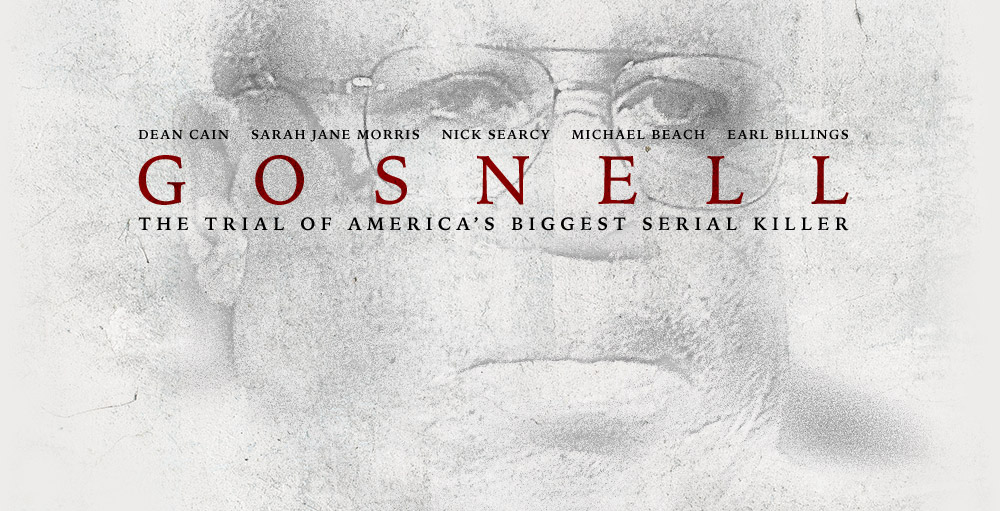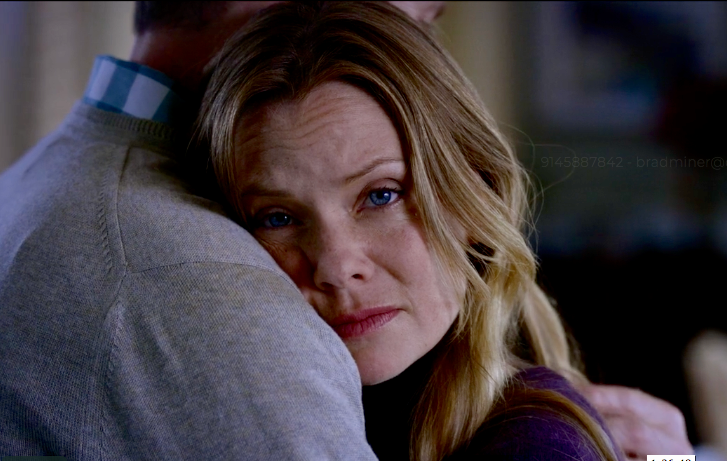There have been notorious murderers brought down for reasons other than their most horrific crimes. Al Capone, mob boss, was felled by tax evasion; Dr. Kermit Gosnell, abortionist, by illegally selling prescriptions for painkillers.
I’d be surprised if there are any readers of The Catholic Thing who don’t know who Gosnell is, but just in case: he’s the former operator of a Philadelphia abortuary, who was a specialist in late-term and “partial-birth” abortions. He would regularly take babies born alive (his clinic’s procedures were slapdash at best) and cut their spinal cords at the neck.
Al Capone was a better person.
Gosnell: The Trial of America’s Biggest Serial Killer is in some ways like an hour-and-three-quarter length episode of Law and Oder: SVU– although the best-ever episode. The director of the film (also one of its stars) is Nick Searcy. Here he plays Gosnell’s defense attorney and manages to be convincing enough so that – even though we know he will lose the case – there’s still dramatic tension in the trial sequences.
Opposing him in court is an assistant district attorney played by Sarah Jane Morris. Ms. Morris is the film’s true star and its dramatic hub. I cry easily and did several times watching this film. Morris is an actress of the first order and her eyes show depth of feeling, whether of anger or sorrow or compassion, and it was she who made me tear up.
The levels of evil in this story are manifold. It starts, of course, with the indifference to human life inherent in abortion itself. Yet you could say – after the familiar pro-abortion mantra – that legal abortions should at least be safe and rare, whereas at Gosnell’s “clinic” they were anything but safe, were very frequent, and many weren’t even legal, occurring after the time limit prescribed by Pennsylvania law.
All this came to light because of a raid on Gosnell’s clinic by the Philadelphia P.D., the FBI, and the DEA looking for evidence related to those painkiller prescriptions.
During the raid, Gosnell is called into a procedure room to aid a patient “in distress.” One of the Philly cops, James Wood (Dean Cain), sees the patient sitting up, her hands on her belly: she’s clearly full-term. This can’t be right. . . . It’s just a glimpse, but it was enough to make me realize Mr. Searcy is as good a director as he is an actor.
Similarly, there’s a very nice sequence of scenes featuring an ambitious blogger, Molly Mullaney (Cynthia Fiallo), with bright red streaks in her hair and the requite tattoos, suggesting a far-Left pro-choicer, which is true. But she’s honest.

And there is some excellent balance between scenes, as, for example, when Detectives Wood and Stark (AlonZo Rachel) discover Gosnell’s collection of . . . baby feet and a later scene in which the prosecutor (Ms. Morris) plays with her own baby’s tootsies and, pro-choice though she is, “has a moment.”
Later, drinking something strong both to deaden her emotions (unsuccessfully) and to loosen her tongue, she explains to her shocked husband what investigators have discovered. “I’m gonna get that bastard,” she says.
The District Attorney (played by Michael Beach) is the first to pronounce Gosnell the worst serial killer in American history and warns his team that the courthouse will be swarming with reporters, all of whom will make this case (about the hottest of hot-button issues) a nightmare for the prosecutors. But when they arrive for the trial, only Molly the blogger is there, although that will change – thanks to her.
Gosnell is rated PG-13, which rating should put at ease any fear that the film is exploitive of the gore associated with abortion. To the extent that there is gore, it’s verbal. The horrors of the abortuary are described, not shown. Normally that would be bad cinema, where the rule is: Show, don’t tell. Here it works.
Gosnell, as portrayed by Earl Billings, lacks “affect,” as perhaps the bad doctor does – so much so that you might have thought he would escape conviction with an insanity defense. His Gosnell is ever-smiling and always in denial. “I look at all the women I’ve treated,” he says proudly, “as if they were my own daughter.”
Much of what’s in the film is based on trial transcripts, but there are some scenes that seem less fact-based – even unlikely. In the morgue, examining the bodies of the largest baby corpses recovered from Gosnell’s clinic of horrors, the medical examiner hands a scalpel to our heroine, the woman prosecutor, so she can cut into a skull to see if the brain is or is not intact (intact would mean the child was born alive and then murdered). This seems unlikely – a violation of medical and legal ethics. But it’s meant to be a kind of “crossing-the-Rubicon” moment for her. She’s pro-choice, after all.
Gosnell is not preachy. It’s fact-based. Janine Turner appears as a “respectable” abortion provider testifying for the prosecution, who – in cross-examination – says she has performed 30,000 abortions. As much as any line in the film, that one brought me up short. It’s that staggering number, of course, but it’s also because Ms. Turner, so stately and beautiful and composed, delivers the line so matter-of-factly. What she describes would make the film R-rated if it were shown.
Earlier, as the murderer’s trial is set to begin, a judge asks Gosnell if he has anything to say. He expresses concern for the rare turtles he keeps at his clinic. The judge instructs the prosecutor to see to the turtles’ welfare, because the judge takes the Endangered Species Act very seriously: “You are going to have to figure out how to deal with these vulnerable creatures.”
___
As mentioned, Gosnell is rated PG-13. Only one scene (in the morgue) involves blood – a liver autopsy. The teleplay is by Andrew Klavan; the screenplay is by Phelim McAleer and Ann McElhinny and is based upon their bestselling book. There are some interesting cameos, including the actual prosecutor, Christine Wechsler, and our friend and former contributor, Austin Ruse, as one of the late-to-the-trial press corps.

Sarah Jane Morris















